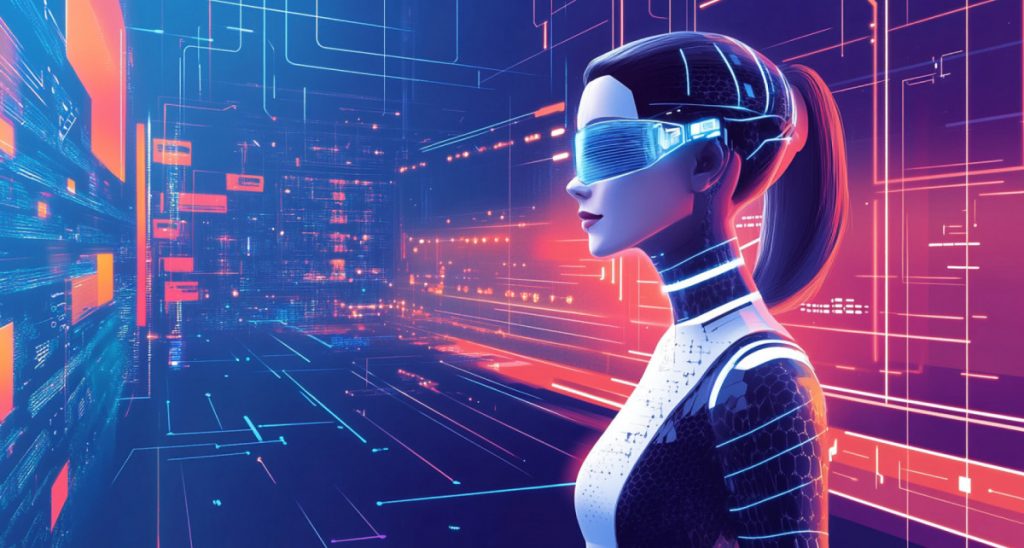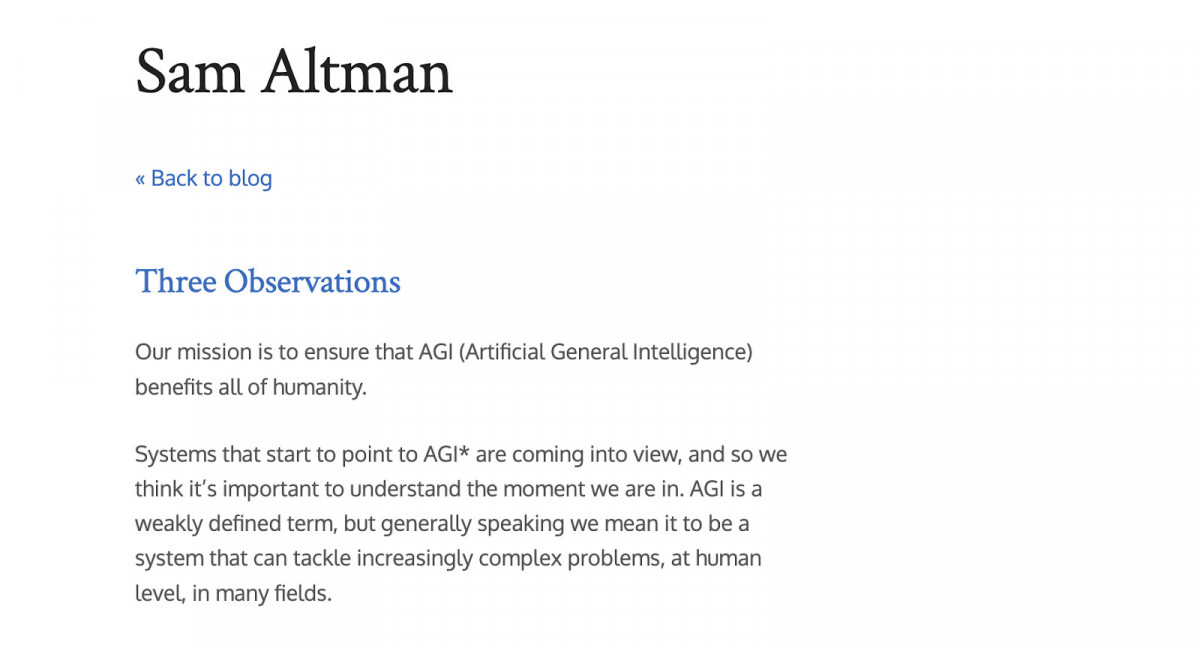Sam Altman Reflects on the AI Revolution and Future Prospects
In Brief
Sam Altman, the chief executive of OpenAI, has shared valuable perspectives on the anticipated evolution of AI, zeroing in on its economic implications, its disruptive capabilities across various fields, and the societal changes it may usher in. These insights lay the groundwork for understanding the future impact of AI on human progress.

The rapid advancement of artificial intelligence is fundamentally altering the economic and cultural fabric of society. Sam Altman, CEO of OpenAI, has presented his thoughts on what lies ahead in the realm of AI, particularly regarding the journey toward achieving artificial general intelligence. His commentary centers on the economic ramifications of AI growth, its ability to revolutionize industries, and the societal shifts that may ensue. This understanding is essential for interpreting AI's future contributions to humanity. The intelligence level of an AI system heavily depends on the resources applied in its training and functioning. The building blocks of AI advancements include computational power, data availability, and inference capabilities, all of which follow predictable scaling principles. Increased financial backing for AI consistently results in measurable advancements, illustrating a logarithmic correlation between expenditure and model performance.

The Economics of AI Scaling
A clear example of this trend is the significant drop in AI operational costs. Traditionally, it was expected that under Moore’s Law, computing power would double every 18 months. Surprisingly, AI has surpassed this expectation. The costs associated with running AI models have plummeted, with the price per token for OpenAI models dramatically reduced. From early 2023 to mid-2024, the cost of accessing GPT-4 dropped by as much as 150 times. This rapid decline in costs broadens access and spurs adoption across various sectors.
The socioeconomic benefits of AI follow a super-exponential trajectory, indicating that even minor enhancements in intelligence lead to disproportionately large economic returns. As investments in AI grow, the advantages become increasingly compelling, ensuring that AI research remains a focal point for corporations and governments globally.
One of the most pressing repercussions of AI development is its encroachment into the workplace. AI agents are stepping in as virtual colleagues, taking over functions once filled by human knowledge workers. While these AI systems still require human oversight, they demonstrate the capability to manage more complex tasks.
AI as a Workforce Multiplier
A noteworthy case is in the realm of software development, where AI-enhanced tools can handle tasks akin to those performed by a junior developer. Although these agents may not generate original concepts, they can manage routine coding tasks, troubleshoot software, and boost overall productivity. When deployed en masse, these AI tools can revolutionize software development and various other industries.
Similar changes are anticipated in sectors like finance, healthcare, and legal services. The efficiency brought about by AI automation can lead to reduced costs and heightened productivity. However, this shift raises concerns regarding job displacement, as some roles become redundant while new opportunities emerge. Striking a balance between AI-enhanced efficiency and human employment will be crucial in the coming years.
Evolving Financial and Social Structures
The process of incorporating AI into everyday life will take time, yet the long-term implications promise to be profound. By 2035, individuals might have access to intellectual resources comparable to entire populations.
The economic effects of AI are likely to vary significantly. Some sectors may experience minimal disruption, while others, particularly those reliant on cognitive labor, could undergo substantial upheaval. For instance, advancements in scientific research are expected to quicken, potentially leading to breakthroughs in vital areas such as healthcare and sustainable energy.
As AI drives down the costs associated with intelligence, many goods and services may become more affordable. However, luxury items and finite resources, like land, could experience price surges. Policymakers will need to proactively address potential disparities in wealth distribution to ensure that the benefits of AI innovations are equitably shared throughout society.
One approach to mitigate economic inequalities is to ensure widespread access to AI tools. Ideas like universal 'compute budgets' could give individuals the ability to leverage AI for both personal growth and professional advancement. Alternatively, making AI resources more affordable could produce similar effects, enhancing access to advanced technologies.
The Role of Governance in AI Implementation
While technological advancements in AI appear straightforward, the social and political aspects of its deployment present significant challenges. Public policy and societal attitudes will play a critical role in shaping the path of AGI implementation. OpenAI’s iterative approach to product rollout aims to keep pace with societal and technological shifts, fostering familiarity and adaptability.
Effective AI governance will need to strike a balance between ensuring safety and promoting individual empowerment. Opening up AI technologies to public use can boost transparency and innovation, yet it may also come with security risks. Policymakers will face the challenge of maximizing the positive impacts while minimizing potential drawbacks.
Artificial intelligence carries substantial geopolitical implications. Authoritarian regimes may exploit AI for extensive surveillance and control, raising serious concerns about privacy and human rights. Ensuring that AI serves the purpose of empowerment rather than oppression will be a pressing responsibility for global leaders.
The Future of Human-AI Partnerships
AI is expected not to supplant human agency but to augment it. Navigating an evolving technological landscape will be an invaluable skill as adaptability and strategic foresight become increasingly important. Those adept at utilizing AI will wield far greater influence than before.
The ultimate vision for AI is to democratize intelligence access, empowering individuals to deploy immense computational resources for solving global challenges. Innovation, creativity, and effective problem-solving will remain at the core of human advancement, with AI acting as a powerful facilitator.
The direction outlined by OpenAI’s leaders suggests a future where AI seamlessly integrates into society, enhancing both productivity and quality of life. Achieving equitable outcomes will require careful planning and robust governance. Decisions made today will shape the role of AI in the years ahead.
Please note that the content on this page is not meant to be construed as legal, financial, tax, or any other form of advice. It's crucial to invest only what you can afford to lose and to seek independent financial guidance if uncertain. For more information, please refer to the terms and conditions and support pages provided by the issuer or advertiser. MetaversePost is dedicated to delivering accurate and impartial reporting, but market dynamics may change without notice.
Disclaimer
In line with the Trust Project guidelines Victoria is a versatile writer covering a range of technology subjects, including Web3.0, AI, and cryptocurrencies. Her extensive background enables her to craft insightful articles that resonate with a broad audience.







